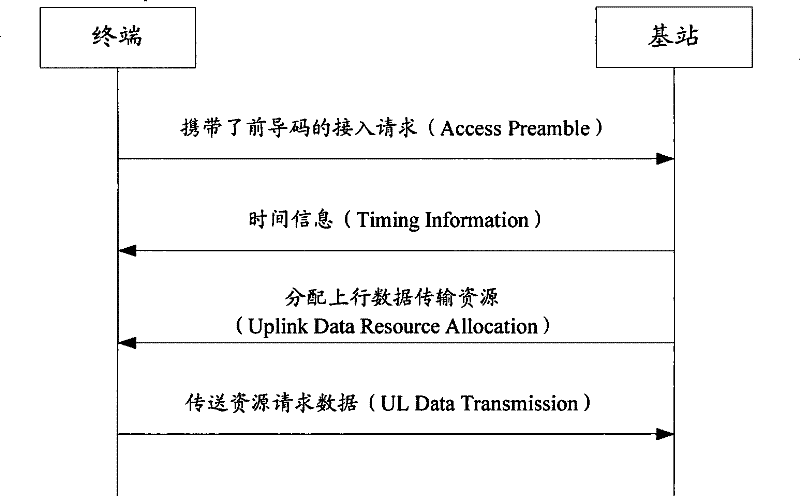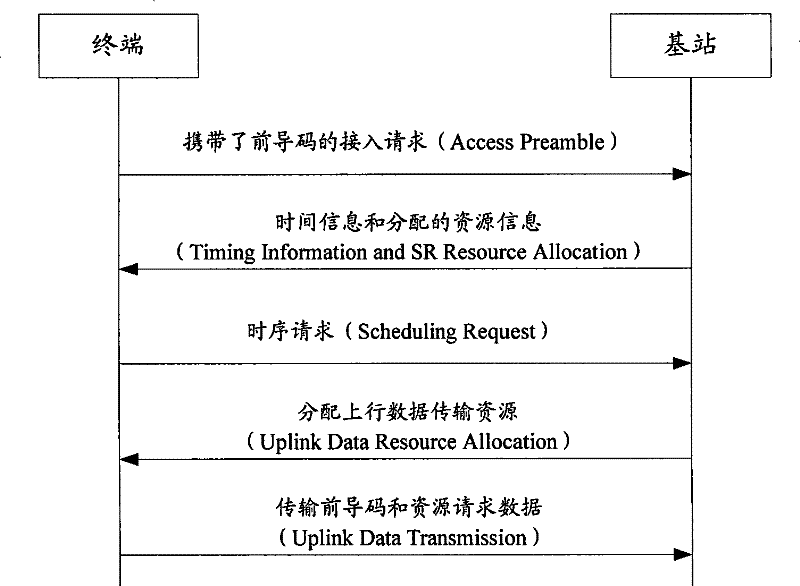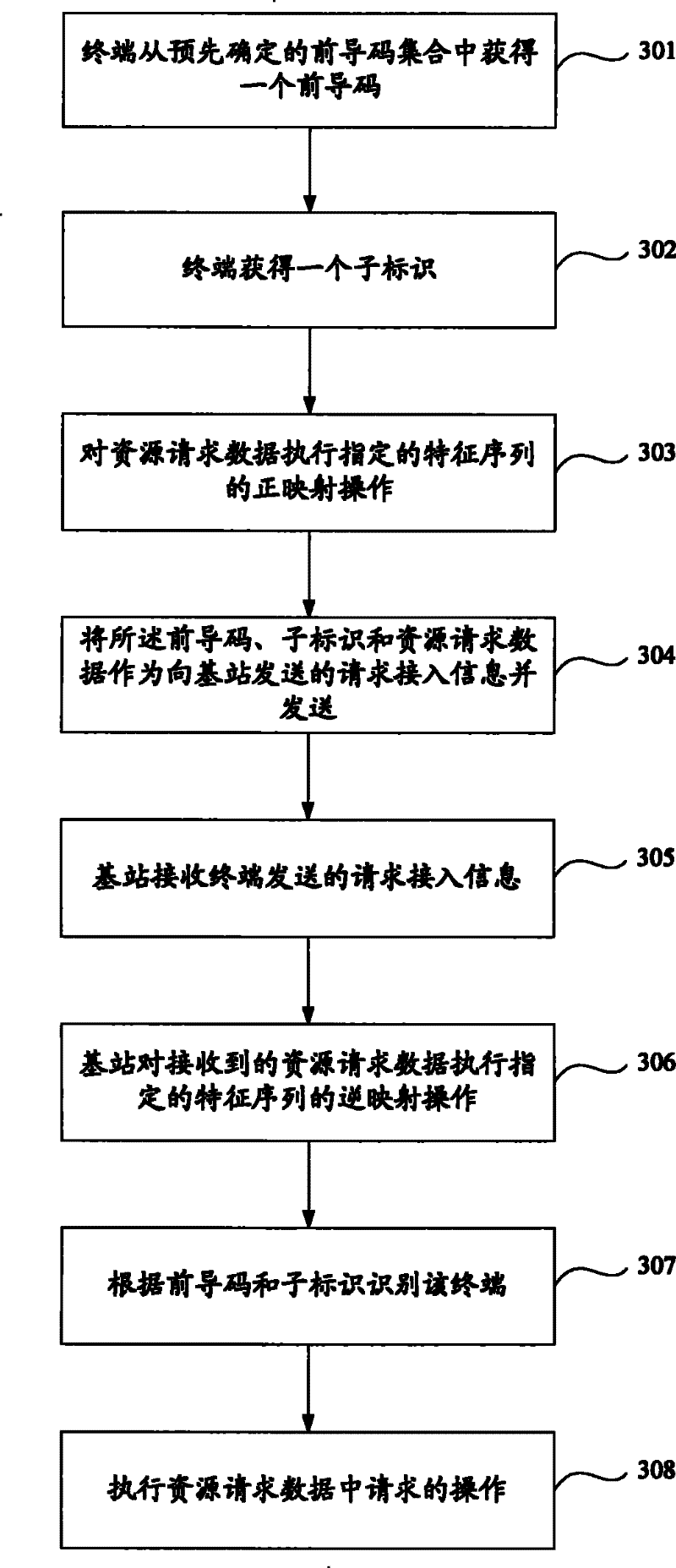Random access method, random access system, access equipment at network side and terminal
A technology of random access and access equipment, applied in the field of communication, can solve the problems of high probability of selecting the same preamble and reduced probability of terminals correctly accessing the network side access equipment, etc., so as to improve the correct access rate and increase the number of terminals. The number of accesses and the effect of reducing the probability of collision
- Summary
- Abstract
- Description
- Claims
- Application Information
AI Technical Summary
Problems solved by technology
Method used
Image
Examples
example 1
[0089] Figure 5 , 6 and 7 represent that when the radius of the cell is 2.5km, 5km and 20km (i.e. the maximum round-trip delay is 16.67μs, 33.33μs and 133.33μs respectively), using the scheme of the present invention and the two-step random access scheme in the prior art to obtain The relationship between the signal-to-noise ratio (SNR) and the collision probability can be seen from the figure, regardless of whether the number of random access users supported in the current cell is 2, 3 or 4, under the same SNR condition, using The collision probability of the scheme of the present invention is obviously lower than that of the two-step random access scheme in the prior art, and the larger the cell radius is, the lower the collision probability obtained by the scheme of the present invention is.
example 2
[0091] Figure 8 and 9 Indicates the number of access terminals that can be supported under the same collision probability obtained by using the scheme of the present invention and the two-step random access scheme in the prior art when the radius of the cell is 5km. exist Figure 8 In the case where the collision probability is lower than 0.3, the method in the prior art can only access one terminal, but in the system using the scheme of the present invention, with the increase of the signal-to-noise ratio, the number of accessible terminals is also reduced by 2 increased to 4. Figure 9 The conclusion is similar when the collision probability is lower than 0.4.
PUM
 Login to View More
Login to View More Abstract
Description
Claims
Application Information
 Login to View More
Login to View More - R&D
- Intellectual Property
- Life Sciences
- Materials
- Tech Scout
- Unparalleled Data Quality
- Higher Quality Content
- 60% Fewer Hallucinations
Browse by: Latest US Patents, China's latest patents, Technical Efficacy Thesaurus, Application Domain, Technology Topic, Popular Technical Reports.
© 2025 PatSnap. All rights reserved.Legal|Privacy policy|Modern Slavery Act Transparency Statement|Sitemap|About US| Contact US: help@patsnap.com



